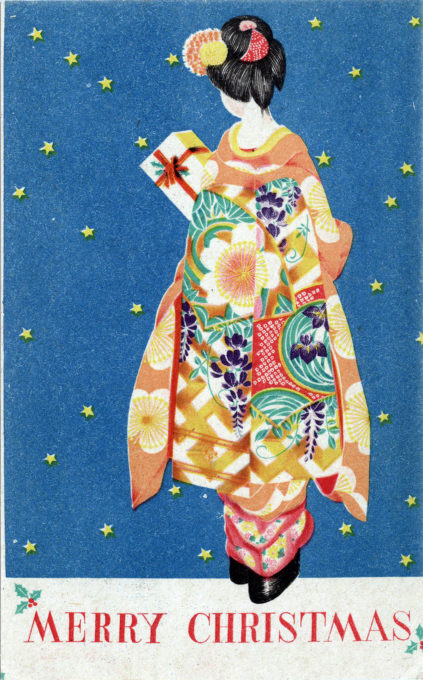Christmas in Japan
“If we stop to think about it, we have to confess that it is a remarkable fact how widespread in Japan the observance of Christmas is getting to be. A little more than three decades ago Japanese were thrown into prison for merely professing to believe in Christianity … Now all over Japan Christmas is growing more and more to be a Japanese national festival.
“Of course, in the interior towns, the non-Christians do not put on as much of a holiday appearance as they do in the larger cities where Europeans have set the example. But even in the smaller towns, where there is a church or small group of Christians, the little chapels and even the rented meeting places will be filled to-night or to-morrow night with an enthusiastic crowd of children and grown people.
“… The Japanese are a festival-loving people and they fall in love with the Christmas idea readily and naturally. It is striking even in Kobe how year by year the shopkeepers who do not profess to be Christians are coming to make their places of business put on a really festive appearance … The Japanese like it because it is a time of decoration, of songs, and of congratulations.”
– The Christian Movement in Japan, edited by the Standing Committee of Co-operating Christians Missions, Methodist Publishing House, Tokyo, 1909
See also:
“Christmas Greetings from the Naces”, Yokohama, c. 1930.
“Christmas Greetings from the Covells”, Yokohama, c. 1930.
Akemashite Omedetou (Happy New Year), c. 1910.
“Another lesson in giving we taught at Christmas, so about that too I want to tell you; the happy season of last year.
“Several Sundays before Christmas we told the children that there were many other little folk living in Tokyo who knew nothing at all about our Christmas and asked them if they would not like to make some of them happy by giving them a gift of cakes. They all agreed heartily that it would be fine, so the afternoon of the day of our Christmas entertainment found our hall turned into a store and our Christian servant the storekecper. They would receive the cakes, write their names on little cards and put one in each bag they bought. Each bag of cakes cost ten sen or five cents.
“… [W]e had a large basket of cakes to be distributed to the poor. These were taken to a large Christian school where there were many other things for the poor to be distributed by automobile truck on Christmas Day.
“At seven o’clock that evening after the buying of the cakes all the children had gathered again, and we had a lovely Christmas program of songs and recitations, and an interesting pageant portraying the birth of Christ gotten up entirely by the larger boys, aged fifteen or sixteen, with the help of the teachers. Then each child was given a bag of cakes and a little gift.
“Many of the children’s parents were present and it brought joy to our hearts to realize that they knew the story of Jesus’ birth. It made us happy, too, to know that these Japanese children who had no tbeen taught to give were willing to buy and give to make someone else happy.
“Pray with us that the seed sown in these little hearts may take root and bring forth fruit, some forty, some sixty, and some a hundred fold.
“[signed] Esther Schillinger, Karuizawa”
– “At the Sunday School Door in Japan We Count the Shoes Instead of the Heads”, by Esther Schillinger, Lutheran Woman’s Work, March 1923


